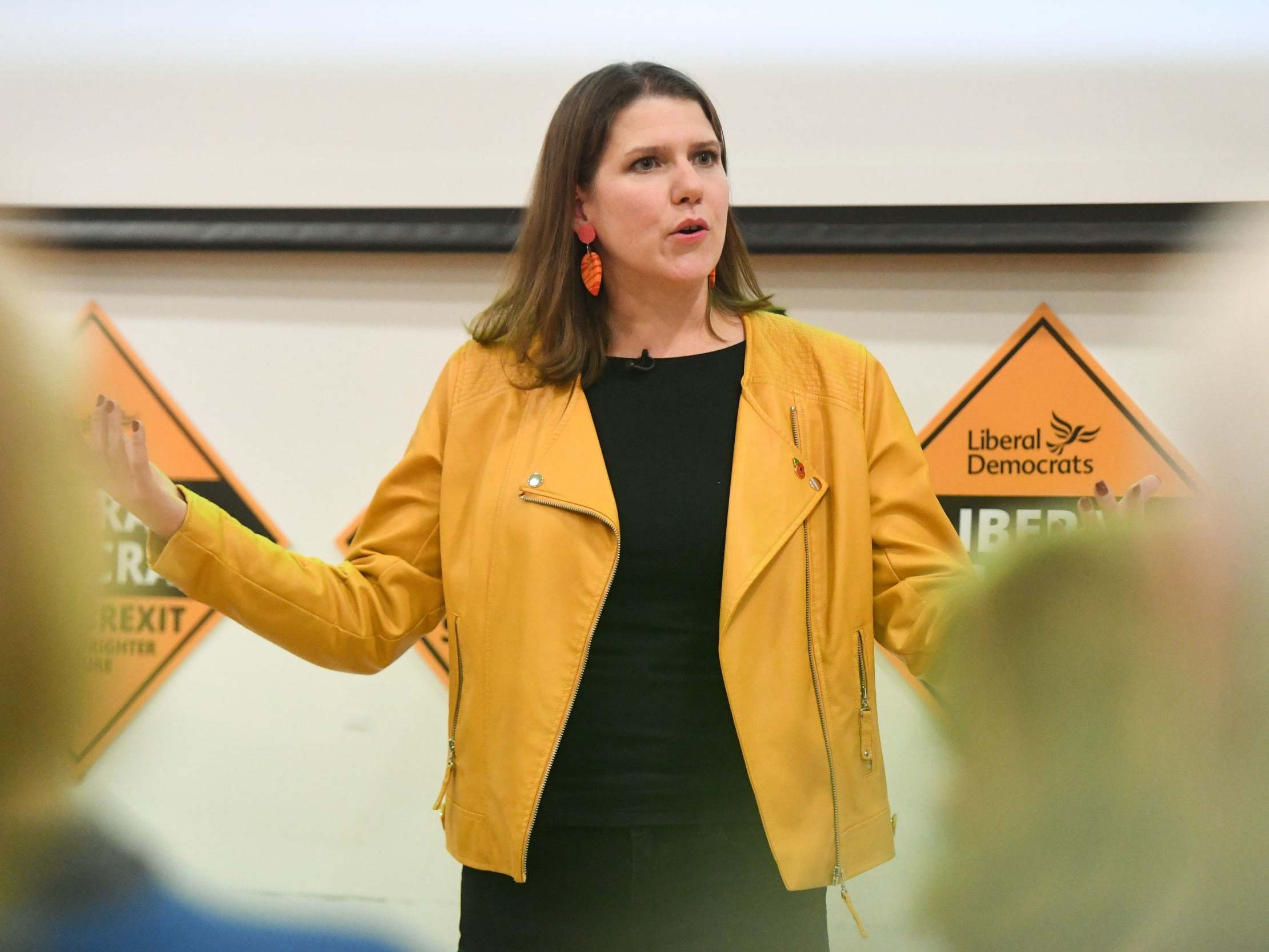How can TV debates possibly be fair in politics?
Jo Swinson has been left out. Yet the line-up in TV debates has to be a compromise, based on what we know of levels of support and likely outcomes

It is unfair that Jo Swinson has been cut out of the first TV debate of this election campaign. ITV has announced that Boris Johnson and Jeremy Corbyn will go up against each other, just the two of them, on 19 November.
The company says other party leaders will be able to take part in another programme “later that same evening”, and that it plans a seven-way debate with leaders or “senior figures” representing all the main parties.
The Liberal Democrats are justifiably furious, but there is no “fair” answer to this question. It is reasonable for the broadcasters to say that there are only two people likely to emerge from the election as prime minister.
Equally, it is reasonable for the Lib Dems to point out that excluding Swinson reinforces that likelihood. If Swinson were included, the Lib Dems would have a better chance of fulfilling her boast of winning a majority of seats. And in the opinion polls, the Lib Dems are closer to Labour than Labour are to the Conservatives.
But then if you let Swinson take part, why keep Nigel Farage out? The Brexit Party is closer in the polls to the Lib Dems than the Lib Dems are to Labour. And so on.
The problem is that there is a feedback loop between public opinion, opinion polls and the media. If voters had no information about how other voters intend to vote, or how they have voted in the past, they might prefer the policies, for example, of the Social Democratic Party, the leftover from the SDP that merged with the Liberals in 1988. It wants to leave the EU, but stands to the left of the Conservatives on most issues. But only its members suggest that William Clouston, its leader, should be included in the TV debates.
So the line-up in TV debates has to be a compromise, based on what we know of levels of support and likely outcomes, depending on the calculations of the prime minister and the leader of the opposition. In this case, they both think a debate is in their own interest. One of them must be wrong, but that is not the point here. And they both think they gain from excluding Swinson.
That is not fair, but neither would a three-way debate be. Nick Clegg struck lucky in 2010 because Gordon Brown and David Cameron both thought it would help them to include him.
Yet, deeply imperfect and unfair as TV debates are, my view is that it is more democratic to have them than not.
Yours,
John Rentoul
Chief political commentator
Join our commenting forum
Join thought-provoking conversations, follow other Independent readers and see their replies
Comments